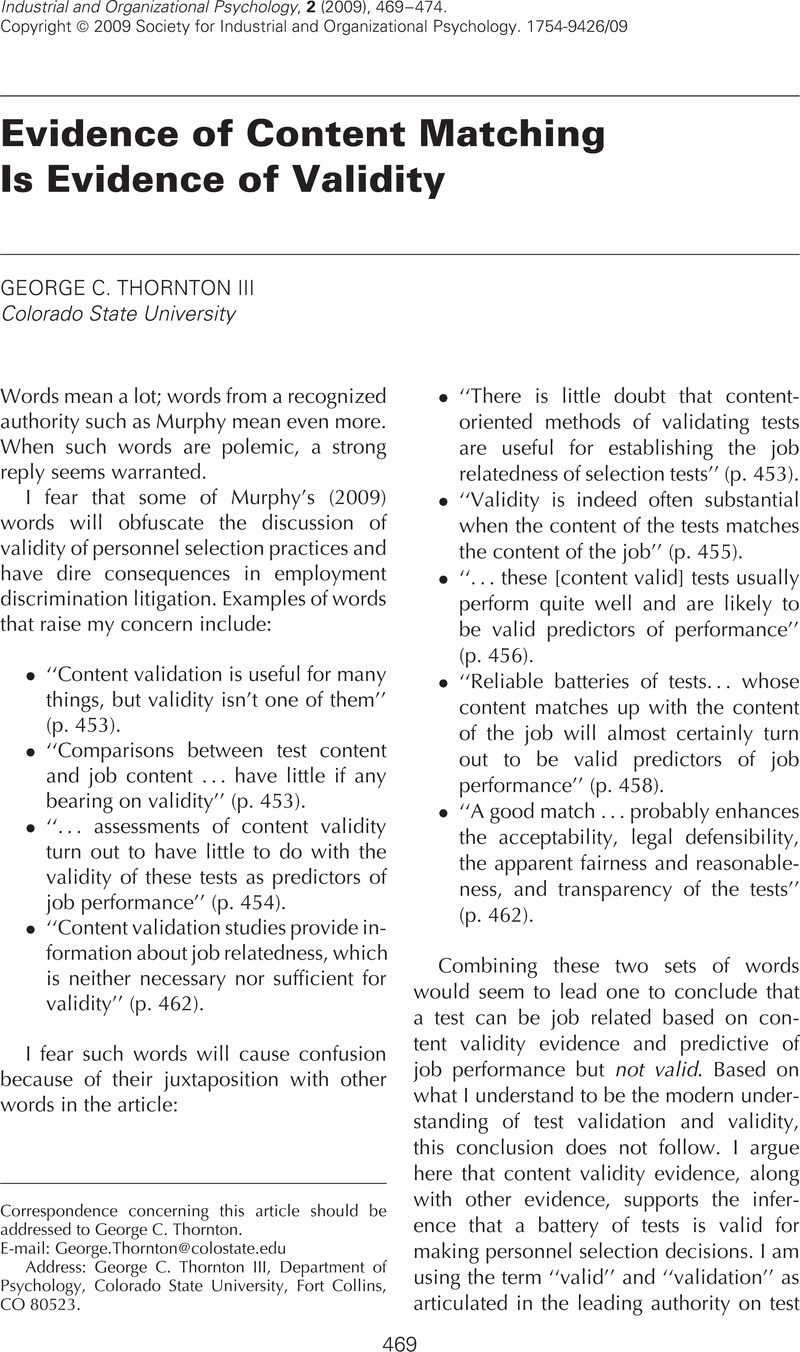Crossref Citations
This article has been cited by the following publications. This list is generated based on data provided by Crossref.
Murphy, Kevin R.
2009.
Is Content-Related Evidence Useful in Validating Selection Tests?.
Industrial and Organizational Psychology,
Vol. 2,
Issue. 4,
p.
517.
Sackett, Paul R.
Putka, Dan J.
and
McCloy, Rodney A.
2012.
The Oxford Handbook of Personnel Assessment and Selection.
p.
91.
Ryan, Ann Marie
and
Ployhart, Robert E.
2014.
A Century of Selection.
Annual Review of Psychology,
Vol. 65,
Issue. 1,
p.
693.
Fisher, David M.
Milane, Christopher R.
Sullivan, Sarah
and
Tett, Robert P.
2021.
A Critical Examination of Content Validity Evidence and Personality Testing for Employee Selection.
Public Personnel Management,
Vol. 50,
Issue. 2,
p.
232.



